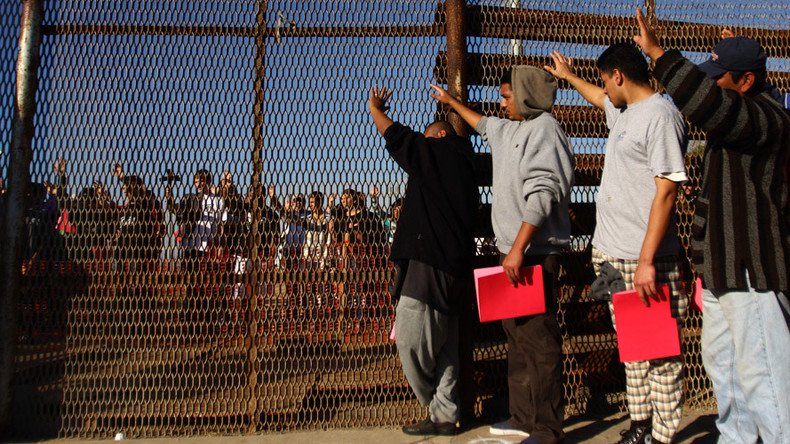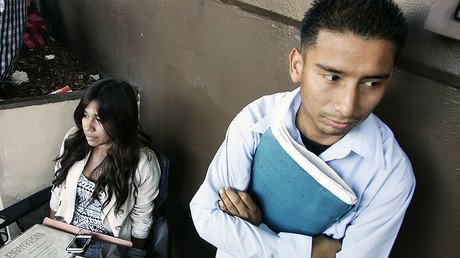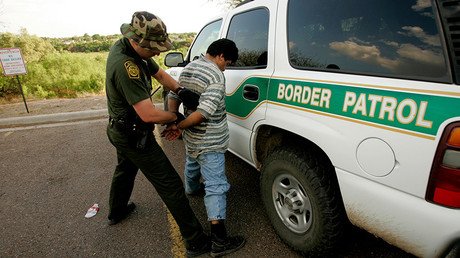Obama’s deportations broke up US families, expelled people with no criminal record – HRW

Contrary to US Barack President Obama’s statements on immigration policy, his administration mass-deported people with no criminal record, as well as parents of US citizens, tearing apart families and local communities, a Human Rights Watch report found.
The report, entitled ‘I Still Need You’, suggested that Obama’s promising statements on immigration enforcement policy directly contradicted his administration’s actual approach towards immigrants. Prepared by HRW, it includes data specifically covering the State of California.
“We’re going to keep focusing enforcement resources on actual threats to our security,” Obama said in his 2014 address on what he referred to as “fixing the broken immigration system.”
“Felons, not families. Criminals, not children. Gang members, not a mom who’s working hard to provide for her kids,” he said.
However, Obama’s promise to tackle immigrants having criminal history did not stand the reality check, the HRW report found. Forty-seven percent of people detained by Immigration and Customs Enforcement (ICE) between October 1, 2014 and June 30, 2015 this period had no criminal history at all.
Most of the rest – 27 percent – had criminal histories that involved relatively minor offenses such as violation of immigration laws or drug use. And only 9 percent of immigration detainees could be identified as convicted of a violent felony according to California law, the report said, citing ICE data.
More than half of ICE detainees in California – 55 percent – were ultimately deported, while another 7 percent left the country through a “voluntary return or departure.” Apparently, detained immigrants barely had a chance to protect themselves as 68 percent of them were not represented by counsel.
However, there was much more behind pure statistics, the HRW report said. Nearly 47 percent of the California detainees forced out of the country had US-born children, meaning that mass deportations destroyed family links and local communities.
“Instead of focusing on violent criminals, US immigration policy has ripped apart American families and communities through the deportation of large numbers of lawful residents and undocumented immigrants with less serious criminal histories,” the report argues.
Obama’s 2014 address was not the first time he promised the immigration authorities would take on dangerous criminals. In a 2012 presidential debate, he said ICE should “go after folks who are criminals, gang bangers, people who are hurting the community...not after folks who are here just because they're trying to figure out how to feed their families.”
Even back in 2014, a New York Times investigation revealed that most of the people deported during Obama’s time in office had committed only minor offences like traffic violations or had no criminal history.
The impact Obama’s indiscriminate deportation system had on immigrant families is hard to measure.
“One of the things that’s important to understand is the ripple effects when someone is deported from the US, on our schools, in dependency on the foster care system, the juvenile delinquency system,” the executive director of Los Angeles-based Immigrant Defenders Law Center, Lindsay Toczylowski, told the Intercept.
“For so many kids that pain and trauma stunts their growth and development. Also, the deported parent is often the primary breadwinner. It throws a curveball into their lives.”














